Bridging the Digital Divide: Advancing Women's Economic Growth through Digital Literacy in Gwagwalada
1.0 Training Overview
On Sunday, December 8, 2024, Tech Herfrica, Tech Herfrica launched a digital literacy and entrepreneurship training program in Gwagwalada Area Council, FCT. As part of the EquipHer4Growth initiative under the Chat for Women’s Livelihood Accelerator program, this effort was supported by Turn.io and the Bill and Melinda Gates Foundation.
The training equipped 210 women with access to digital literacy and entrepreneurship skills training through a WhatsApp-based chatbot.
1.1 Training Focus
The training included a comprehensive session, covering essential skills in:
- Introduction to technology
- Benefits of the digital world
- Bookkeeping and Entrepreneurship skills
- Effective smartphone usage (tailored for both feature-rich and WhatsApp-enabled devices)
- Creating email accounts
- Leveraging social media for business
- Online Safety
- Google search techniques
1.2 Training Delivery
The training was conducted in Pidgin, emphasizing practical applications of smartphones and digital tools to enhance women’s economic and livelihood skills. Pre- and post-assessments measured digital literacy progress. The training was delivered in two formats to ensure accessibility for all participants:
- WhatsApp Chat Service: 164 women participated via Tech Herfrica’s WhatsApp-based training. This format allowed them to learn directly on their mobile devices, facilitating hands-on practice with digital tools.
- Community-led Sessions: Tech Herfrica staff supported by a local community leader conducted sessions for 46 women without direct access to smartphones. This approach enabled group learning and discussion on the chat service using a single device and watching the courses, making the content accessible to everyone.
2.0 Program Outcomes
The training achieved significant results:
- Increased Awareness: There was a 74.29% increase in awareness of the participants who reported learning to leverage technology for income generation and business growth.
- Enhanced Online Learning: Online learning participation rose from 30 to 174 participants by the end of the program.
- Improved Social Media Skills: 88.10% of participants reported enhanced knowledge in using WhatsApp and Facebook for business.
- Improved Email Proficiency: 74.29% of participants reported that they now know how to create and use an email account.
- Boosted Confidence in Google Search: Confidence in using Google Search increased by 64.28%.
- Economic Empowerment: 160 out of 210 participants gained confidence in using phones to generate income.
- Improved Entrepreneurial Skills: All participants reported an increased understanding of entrepreneurship.
- Enhanced Financial Management: 90% of the participants gained a comprehensive understanding of bookkeeping for business success.
- Trade Facilitation Through Networking: Participants were added to a WhatsApp group designed to aid trade facilitation and foster collaboration, ensuring ongoing peer support and resource sharing.
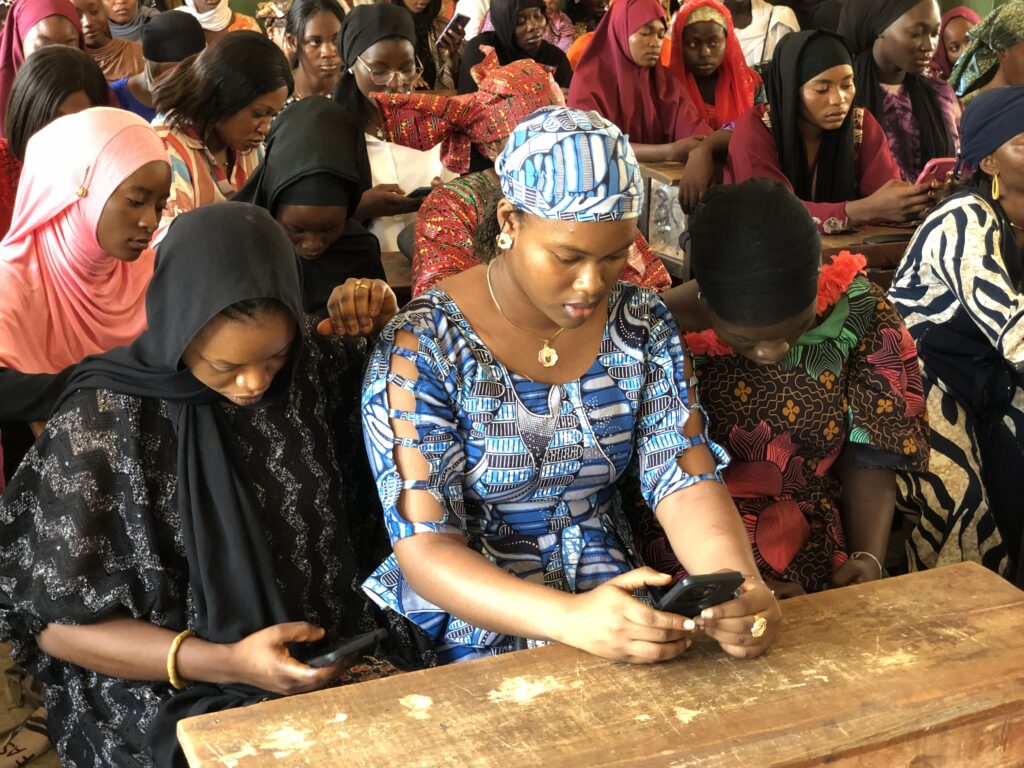
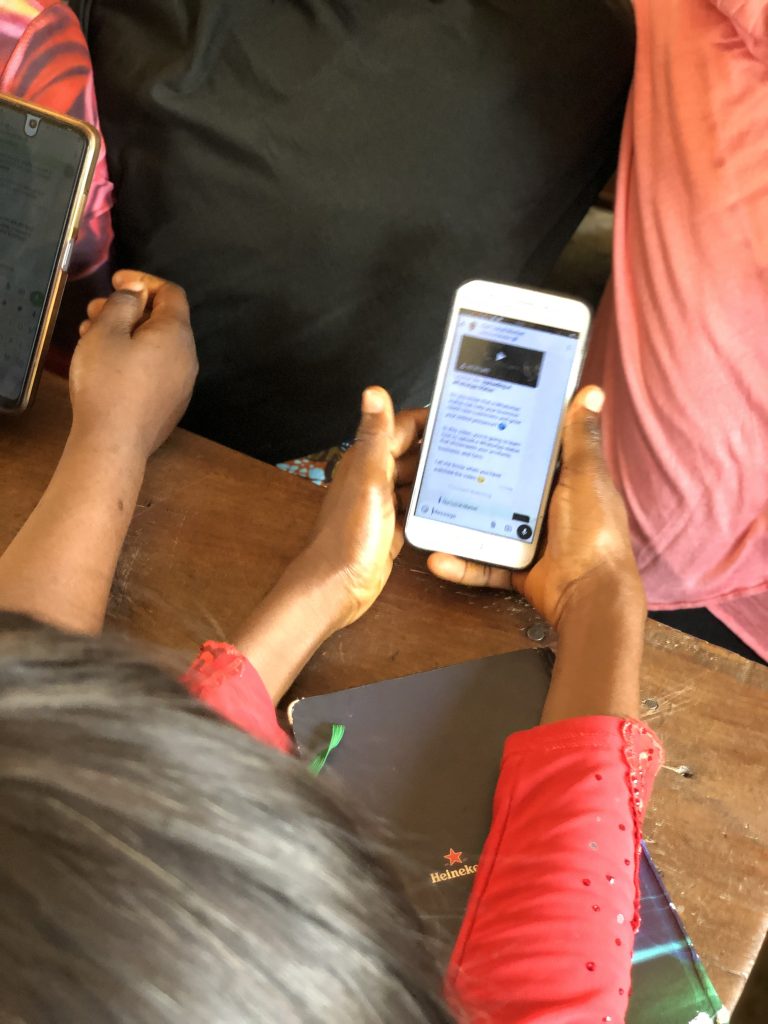
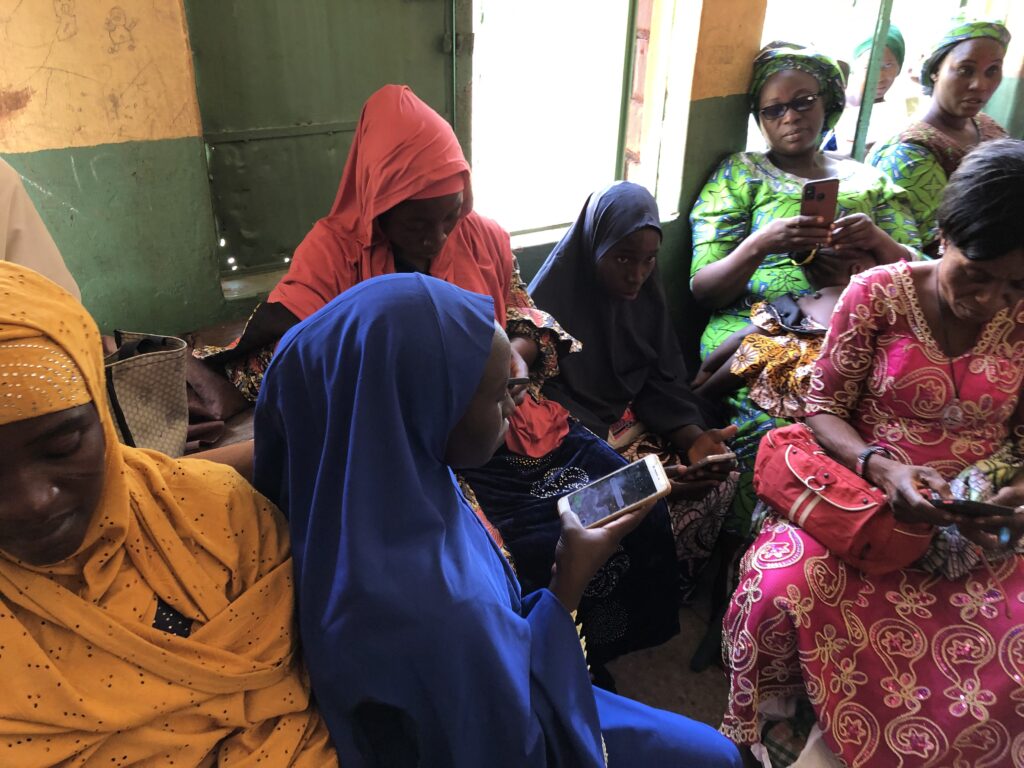
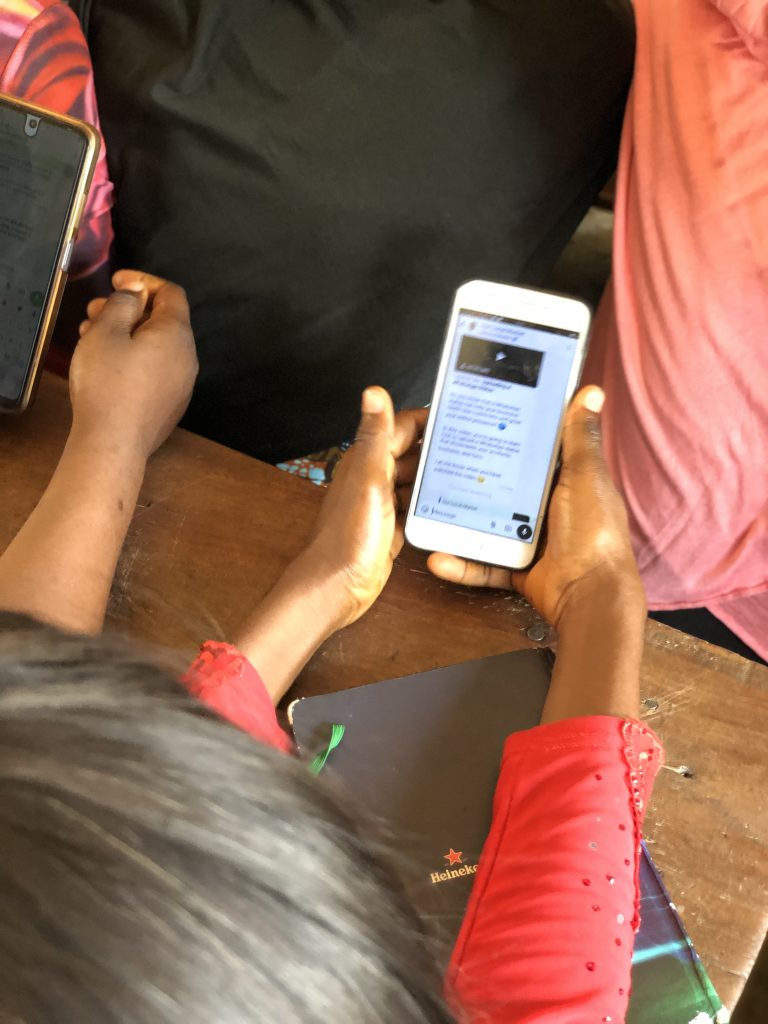
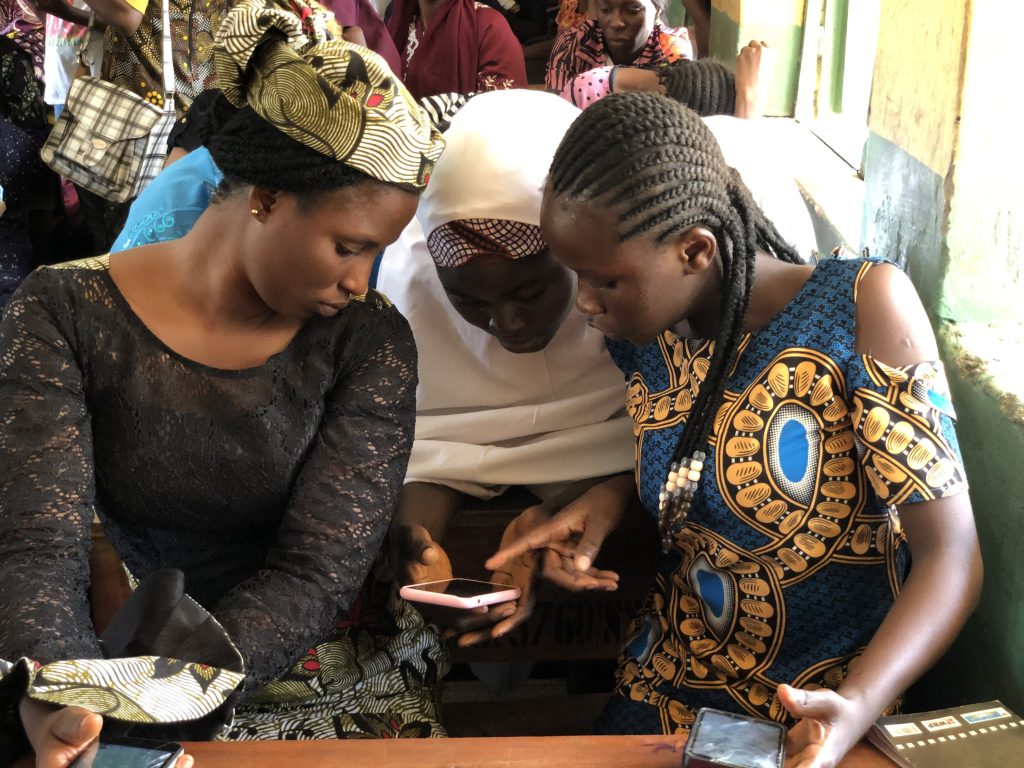
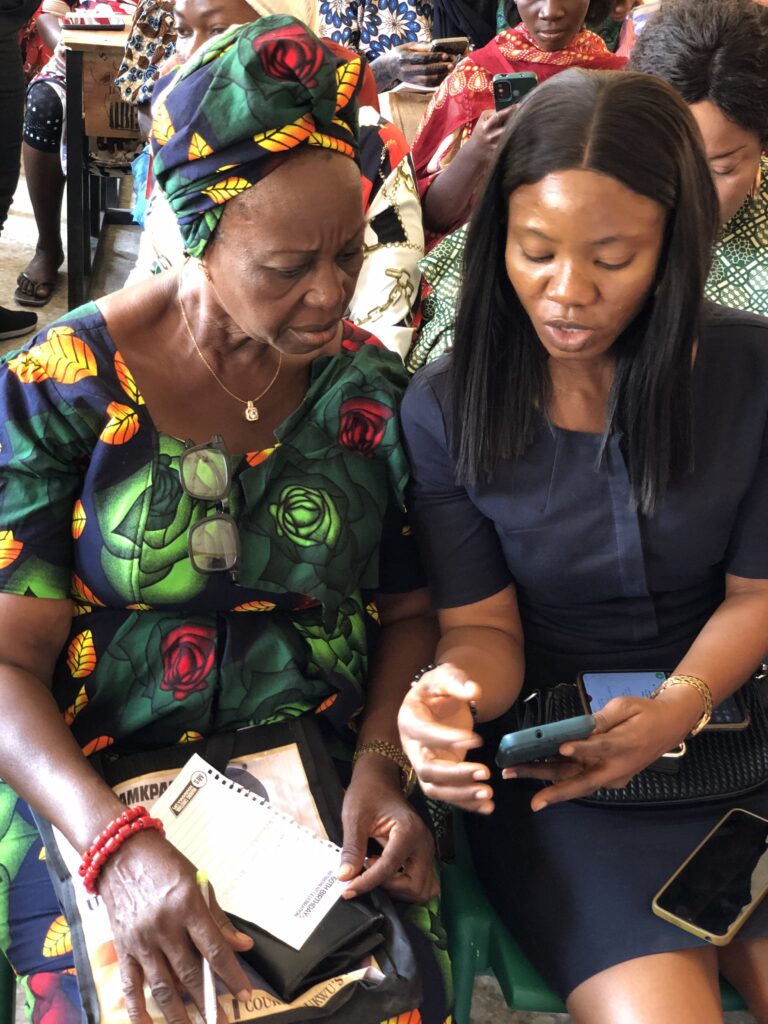
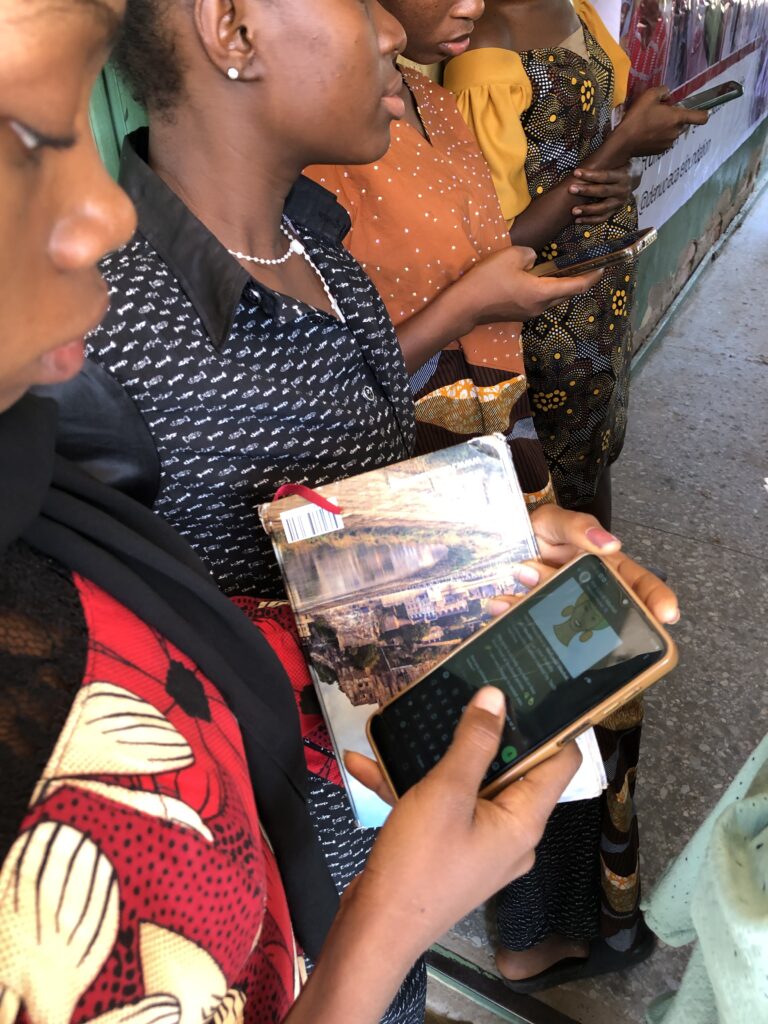
3.0 Lessons Learned
- Community Engagement is Essential
Engaging with local leaders and community groups was crucial to the training’s success. This outreach fostered trust, ensured high participation, and instilled a sense of ownership among the women. Future trainings will aim to increase pre-event outreach and collaboration with community influencers to maximize impact.
- Hands-On Training Drives Learning
A practical training approach significantly boosted participants’ confidence and skills retention. Real-time activities, such as setting up email accounts and sending WhatsApp voice notes, enabled participants to immediately apply their learning. Future programs should continue to prioritize interactive, practice-based sessions.
- Tailored Content Increases Relevance
Content tailored to the participant’s needs, focusing on practical skills such as social media usage, online safety, and effective smartphone use, ensured relevance and applicability. Future initiatives should continue to adapt content based on the unique needs and circumstances of each target audience.
- Availability of Smartphones Impacts Participation
The varying levels of technology access among participants (WhatsApp-enabled vs. feature-rich phones) highlighted the importance of adapting training methods. While the program successfully catered to both groups, future initiatives could explore providing temporary access to smartphones or partnering with organizations to offer affordable devices. This would ensure all participants can fully maximize the benefits of digital skills training.
- Incentives for Participation: Providing data and transport stipends helped ensure full participation, as it removed financial barriers that could have otherwise prevented some women from attending.
4.0 Sustainability Strategy
To ensure the program’s long-term impact, Tech Herfrica plans to:
- Adapt to Diverse Communities: Continue to customize training to meet the regional needs of communities across Nigeria, considering cultural and language preferences.
- Build Strategic Partnerships: Collaborate with local organizations, NGOs, and government agencies to expand the program’s reach.
- Empower Local Champions: Train local facilitators to support sustainable program delivery and continuity.
- Measure Impact: Continue to implement a robust monitoring and evaluation system to assess program effectiveness and identify areas for improvement.
- Update Learning Opportunities: Conduct regular virtual training on practical steps for online business growth to foster a thriving community.
5.0 Conclusion
This digital literacy training successfully empowered women in the Gwagwalada community by enhancing their digital and entrepreneurial skills. Tech Herfrica’s commitment to a sustainable, community-centered approach ensures the program’s continued success, paving the way for countless women to achieve economic independence through technology.

